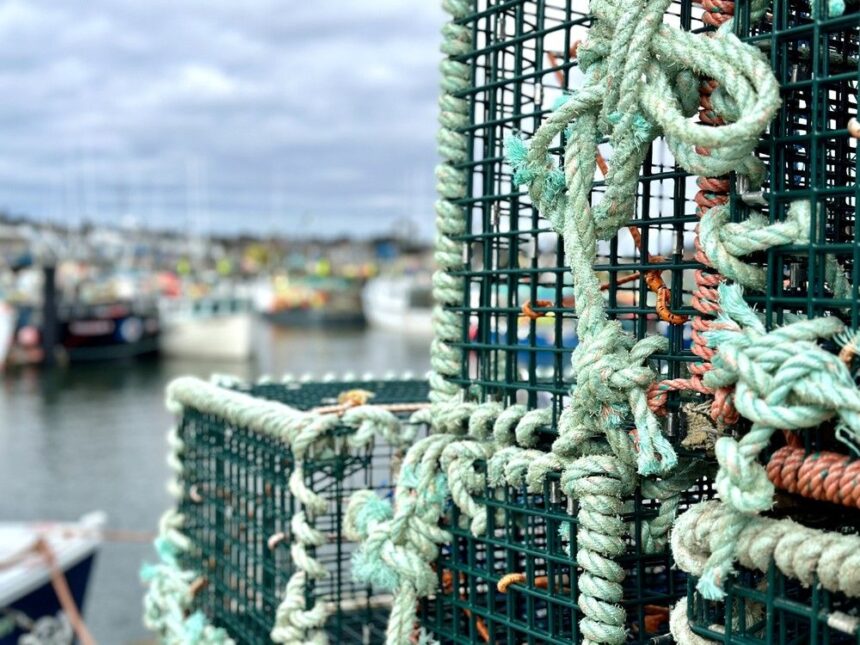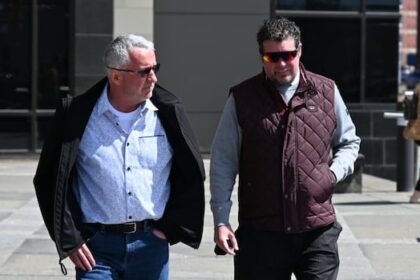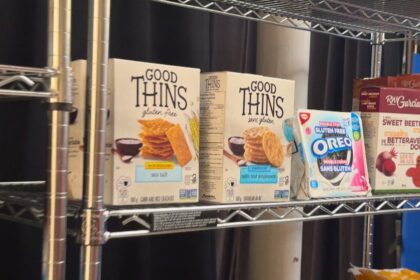Province’s new compliance unit to combat illegal activities in seafood buying and processor sectorPublished Nov 17, 2025Last updated 6 hours ago6 minute readLobster traps sit on a wharf in Yarmouth County. The provincial Department of Fisheries and Aquaculture wants to ensure that all lobster coming ashore is being recorded and purchased legally. TINA COMEAU Article contentNova Scotia’s fisheries minister says everyone has a role to play in combating illegal fishing activity not just on the water, but on shore too. And so, the province is establishing a new, dedicated compliance unit to combat illegal sales and activities in the fish buying and processing sector.THIS CONTENT IS RESERVED FOR SUBSCRIBERS ONLY.Subscribe now to access this story and more:Unlimited access to the website and appExclusive access to premium content, newsletters and podcastsFull access to the e-Edition app, an electronic replica of the print edition that you can share, download and comment onEnjoy insights and behind-the-scenes analysis from our award-winning journalistsSupport local journalists and the next generation of journalistsSUBSCRIBE TO UNLOCK MORE ARTICLES.Subscribe or sign in to your account to continue your reading experience.Unlimited access to the website and appExclusive access to premium content, newsletters and podcastsFull access to the e-Edition app, an electronic replica of the print edition that you can share, download and comment onEnjoy insights and behind-the-scenes analysis from our award-winning journalistsSupport local journalists and the next generation of journalistsRegister to unlock more articles.Create an account or sign in to continue your reading experience.Access additional stories every monthShare your thoughts and join the conversation in our commenting communityGet email updates from your favourite authorsSign In or Create an AccountorArticle contentStanding inside Rudder’s Seafood Restaurant and Brewery in Yarmouth on Nov. 17 – a week before the lobster fishery here was scheduled to start – Kent Smith, the minister of Fisheries and Aquaculture, said the seafood sector is a vital driver for the economy. It creates jobs, feeds families, and supports communities.Article contentArticle contentArticle contentBut Smith also said it is estimated that up to 30 per cent of annual lobster landings in Atlantic Canada go unreported.Article content“This represents up to $400 million in lost taxable income for Nova Scotia,” said Smith. Contributing to this are cash purchases that are not recorded.Article contentThe department’s new compliance unit will target illegal seafood-related activities that are negatively impacting the sustainability of the province’s resources, Smith said.Article content“As the regulator of the shore-based fish buying and processing sector, these inspectors will focus their activities on the wharfs and in seafood facilities where illegal activities occur,” he said.Article content Tables were cleared out of a section of the Rudder’s Seafood Restaurant and Brewery in Yarmouth on Nov. 17, for an announcement made by Kent Smith, the minister of Fisheries and Aquaculture, about a new compliance unit in the province. TINA COMEAUArticle contentThe unit will include four inspectors responsible for monitoring, inspecting, and investigating regulatory compliance across the province, and will act on offences.Article contentThe unit will work with federal and provincial enforcement services, including Department of Natural Resources (DNR) conservation officers.Article contentArticle contentThe four inspectors are actually crossing over from DNR to the fisheries department. Because DNR compliance officers have many responsibilities it pulls them in many directions, whereas as part of the fisheries department the new unit will be more hyper-focused.Article contentArticle contentEnforcement actions could include fines, licence suspensions, loss of licences, and formal charges.Article contentSmith said the province is also setting up a new audit program and developing stronger summary offence tickets with penalties to match the seriousness of the activity. Options on this front include suspending and/or terminating a fish buyer and/or processor licence.Article content Kent Smith, the minister of Fisheries and Aquaculture, takes questions from the media after announcing the establishment of a new compliance unit in his department to combat illegal seafood sector activities in the buyers and processing side of the industry. TINA COMEAUArticle contentCONCERNS RAISEDArticle contentSmith said since becoming fisheries minister in September 2023, he’s met with harvesters, buyers, and processors across the province and they’ve repeatedly raised concerns over illegal activity within the seafood sector.Article contentHe said the sustainability of the fisheries begins on the water, and this is where the federal government has clear jurisdiction. “With the recent news of increased enforcement efforts by DFO, I am optimistic that our new federal government is taking this issue more seriously,” he said.Article contentBut combating illegal activity must also happen on shore, Smith said, saying illegal activities harm the sustainability of the resource, the reputation of the industry, and the safety of communities.Article content“The unit will check wharfs for designated buyers and inspect buyer and processor facilities. The inspectors will verify that licensed terms and conditions are being followed and conduct record checks to ensure the seafood they have, has been purchased legally,” said Smith. “Information gathered will also be shared with our enforcement partners to build larger cases against illegal actors where necessary.”Article contentArticle contentRelatedArticle contentSmith said the mandate of the compliance inspectors will be to visit every buyer and processing facility in the province, collect records and “make sure that our licensed buyers and processors are all on the up and up.”Article contentAsked if inspectors can receive tips on places or people they should be inspecting, Smith said in the future there will be a dedicated phone number and email address where people can provide anonymous tips.Article contentTHE PLAYING FIELDArticle contentKris Vascotto, the executive director of the Nova Scotia Seafood Alliance, said the new compliance unit speaks to the province’s commitment to ensure a fair playing field for all enterprises in the seafood sector.Article content“A focused compliance unit will help stamp out illegal activity and boost the prosperity for all participants in the industry,” said Vascotto, adding this is something that the seafood sector has been asking for. He thanked the minister and province for listening, calling the unit welcome news.Article contentArticle content Kris Vascotto, the executive director of the Nova Scotia Seafood Alliance, said a new compliance unit announced by the province to combat illegal seafood sector activities is welcomed news. TINA COMEAUArticle contentThe news was also welcomed by groups representing fish harvesters.Article content“From a harvesting side, the captains, we definitely welcome this. This is good news. We’ve been asking for this for a long time,” said Dan Fleck, executive director of the Brazil Rock 33/34 Lobster Association.Article contentFleck said unreported, unregulated, illegal fishing harms the industry, saying, “If it’s not on the books, we don’t know about it.”Article contentThat’s problematic, Fleck said, because if landings aren’t being properly reported, then the biomass data that DFO depends on for its scientific and harvesting plans is questionable.Article content“When you’re basing something on it, and you only have 70 per cent of your data, it throws all of your harvesting plans into question,” he said. “To crack down on this illegal, unreported, unregulated fishery, we definitely welcome this.”Article contentBernie Berry, the senior fisheries advisor to the Coldwater Lobster, says 10 to 30 per cent of landings not being accurately reported is a problem.Article content“I’m glad this provincial government and the federal government are finally taking this seriously,” he said, saying the issue has basically been ignored for 10 to 15 years. “We’re hoping this expands more and more, although I know they can only do so much.”Article contentHe also hopes electronic logbooks that are eventually coming for fish harvesters will help in telling the seafood story in a more timely fashion. When paper logbooks are slow to come in, the lag time impacts the industry.Article content“We’ve got questions about how healthy our stock is and what is happening,” he said. “We should have real-time data, but we don’t.”Article content Kent Smith, Nova Scotia’s minister of Fisheries and Aquaculture (right) speaks with Bernie Berry and Dan Fleck, representing local fish harvester associations, following an announcement the minister made in Yarmouth on Nov. 17. TINA COMEAUArticle contentWATCHING YOUArticle contentThere have been harvesters and others in the seafood sector who for years have been asking the federal and provincial governments to increase enforcement not only on the water, but also on shore. Some may wonder with this latest provincial announcement: What took so long?Article contentArticle contentSaid Smith, “It took this long because we wanted to make sure we were doing the right thing and working with industry to make sure we’re responding to the issues that they’re addressing to us. Over the last two years, since I’ve been minister, we’ve increased the fines. We’ve changed licence conditions. This is another step in improving enforcement activity that the province has responsibility over.”Article contentThe province has increased maximum fines for illegal seafood buying from $100,000 to $1 million for a first offence, and up to $2 million for a second offence. The fines are aimed at addressing illegal activity, such as the purchase of out-of-season lobster.Article contentSmith said as of yet, there haven’t been any $1 million fines that have gone through the court system.Article contentHowever, the minister did say the department has 16 active investigations on the go.Article contentArticle content“It’s not like we’re not already doing enforcement activities. It’s just that our enforcement activities, they’re not as visible as the DFO’s,” he said, whereas the federal Department of Fisheries and Oceans, over the past couple of months, has taken to Facebook to make posts about the enforcement it has carried out and the arrests that have been made.Article content Part of the lobster catch brought ashore. TINA COMEAUArticle contentVascotto, meanwhile, says it benefits everyone for the seafood sector to know it is being closely monitored.Article content“One of the key parts that we’re finding is we have a lot of things like licence conditions, things that we’re supposed to be doing, but if nobody ever checks to see that those things are being done, it’s very hard to make sure that you can translate that into real management decisions,” he said.Article content“There’s going to be eyes on the wharf looking at the transaction. There’s going to be eyes looking at the records that are going into the department,” he said. “I expect that this is going to be a small step that is going to lead to bigger steps to bring everybody into a greater degree of compliance.”Article contentAdded Vascotto, “Somebody is going to be watching you. This is exactly what we’ve been asking for, for years, and it really is quite refreshing to see it actually being put into place.”Article contentArticle contentArticle contentArticle content
New Nova Scotia compliance inspectors will be on wharfs, in seafood plants making sure lobsters are legal











